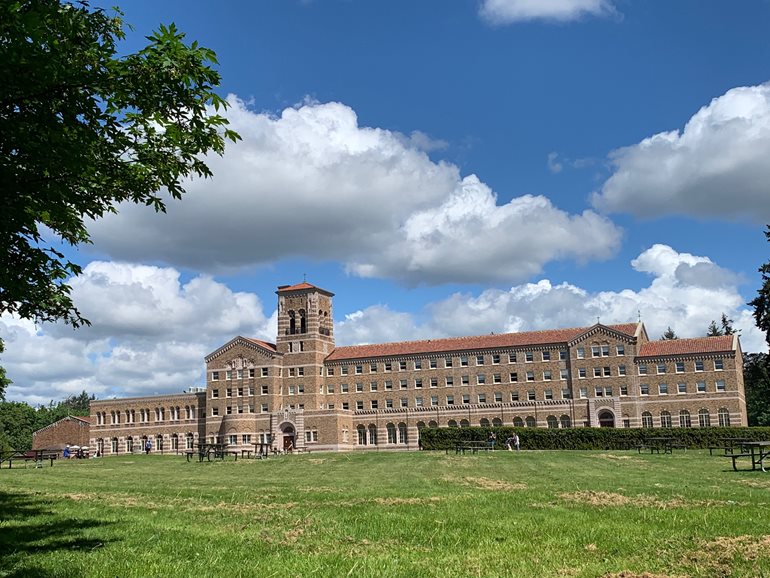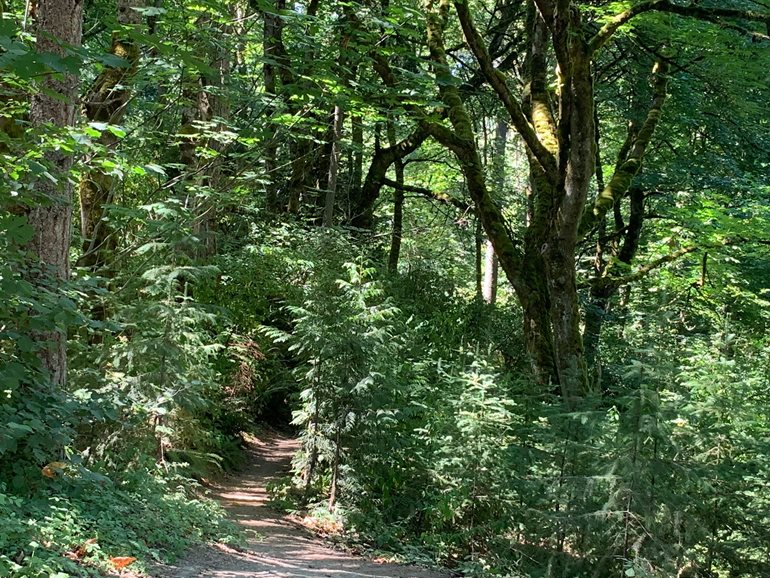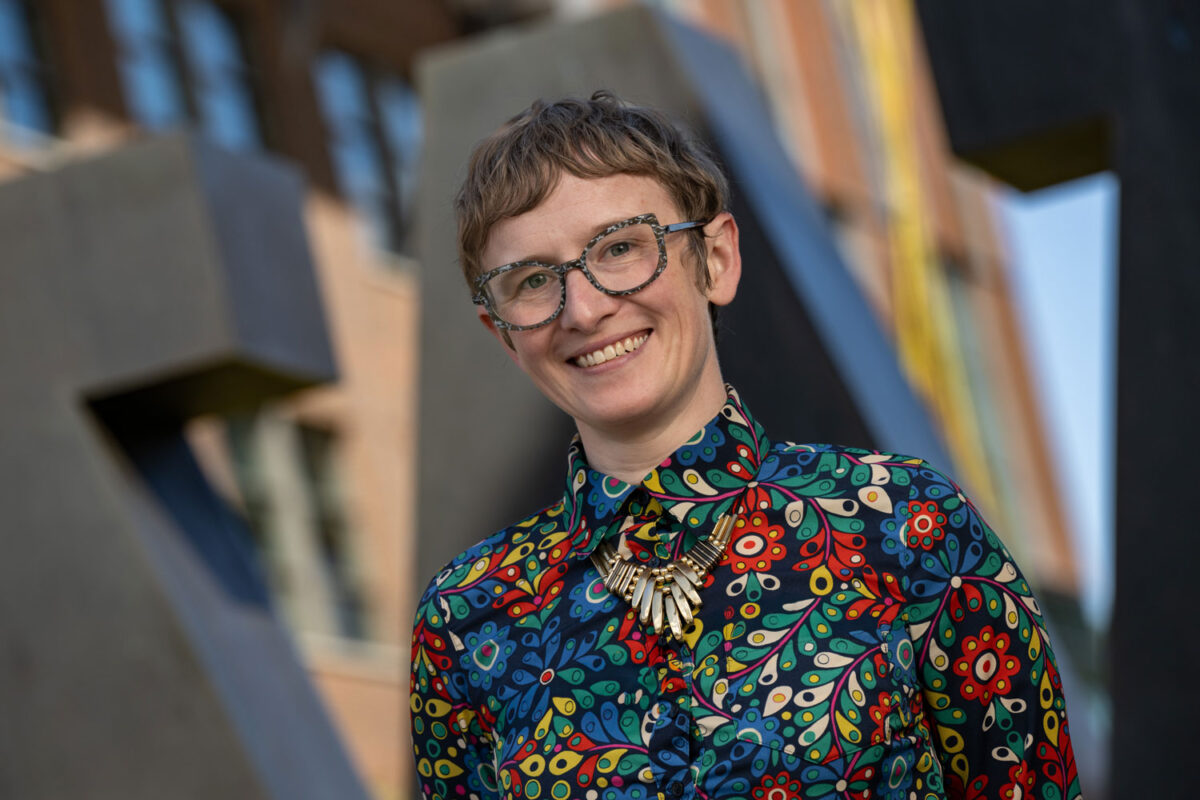
As National Recreation & Parks month comes to a close, the University of Washington Bothell Environmental Education & Research Center at Saint Edward State Park is gearing up to open. The one-of-a-kind facility, designed for the appreciation, study and stewardship of Pacific Northwest ecosystems, will officially launch this fall in the annex to what until 1977 was the historic Saint Edward Seminary.
The EERC’s opening, delayed a year by the coronavirus pandemic, is much-anticipated after years of hard work and collaboration between UW Bothell, Washington State Parks, local legislators, community members and Daniels Real Estate. Daniels leased and completed rehabilitation of The Lodge at Saint Edward, a boutique hotel that makes up the rest of the 90,000 square foot space.
““The education and research center is such a wonderful complement to the park and lodge,” said Carolyn Brennan, assistant vice chancellor for the Office of Sponsored Research and the Office of Connected Learning. “It’s that missing piece, and it’s very satisfying to think that it will be around for a very long time to come.”
A community in collaboration
The concept of the EERC was first brought to UW Bothell and Washington State Parks by community advocate Susan Carlson, who had recently moved to the area. “The existence of the park has a lot to do with our decision to put stakes down in this particular place in 2014,” said Carlson, who previously lived in Washington, D.C., where she had worked for several large environmental nonprofits.

“I would walk in the park, marvel at its beauty, thinking about its many geologic, biologic and cultural histories including the Indigenous people who once inhabited this area — and wonder how we might enrich opportunities for environmental learning and community research within the park,” she said.
Carlson began to consider ways that the landscape might be re-envisioned and shared her ideas at local community meetings. She drew inspiration from her many visits to two environmental learning centers in her home state of Maine — The Schoodic Institute in northern Maine and The Wells Reserve Farm in southern Maine — which are both historic properties that were transformed into educational resources for the surrounding communities.
As for the development at Saint Edward State Park in Washington, the community expressed great interest in ways to make the Lodge publicly accessible, enhance benefits to local communities and mitigate against impacts to the park’s natural environment and the wildlife it supports.
When staff at Washington State Parks caught wind of Carlson’s idea, which already had a lot of grassroots support, they began to talk with Daniels Real Estate about setting aside a portion of the seminary for the EERC.
“We thought this was a good way to give a nod to the natural environment, the rest of the park and all the wonderful things that are going on there from a natural resource perspective,” said Peter Herzog, assistant director of Parks Development for Washington State Parks. “Plus, the park was originally purchased with federal money that required it to be open and available to the public always.

“In order to make sure that the public is appropriately able to visit the facility and enjoy the property,” he said, “we wanted to retain a part of the leased area specifically for public education purposes. Initially it was space within the seminary itself, but then we shifted it to a separate building next to the gymnasium for the education and research center.”
Building on the momentum
With a space for EERC secured, the multi-year push began for the funding needed to renovate the aging annex and run operations within the new center. This involved both securing a planning grant and fundraising close to $1 million in partnership with local legislators.
“A week after being awarded the annex space, Rep. Gerry Pollet came back to me and said, ‘Great job — now we need a plan,’” said Carlson. “He said that he was interested in putting in a request to the Legislature to obtain an operating budget appropriation for a planning grant.”
Recognizing the great research opportunities the park offered, Pollet, whose district includes the park, also encouraged Carlson to partner with UW Bothell. Carlson reached out to Dr. David Stokes, professor of ecology and conservation biology in the School of Interdisciplinary Arts & Sciences, who was immediately enthusiastic.
“The diversity of habitat — forest, wetland, streams and lake — makes it a great place to teach. It has so much to offer,” Stokes said of the park in 2019.
After meeting with Carlson, Stokes submitted the idea to Brennan in the Office of Sponsored Research, who quickly jumped at the opportunity for UW Bothell to deepen its involvement with the community and commitment to sustainability.
“This facility represents the social justice mission that is at the core of what we do,” said Brennan.
In December 2020, the EERC secured a multi-year grant from the UW Bothell Investment Fund. The grant funds a staff position and the development of center programming that will activate the park for environmental learning, stewardship and leadership through citizen science and field research opportunities for UW Bothell students as well as K-12 students and the local community. Lily Cason, program manager, started July 1 to begin planning for the center opening.
The future of environmental stewardship
UW Bothell, Washington State Parks and community members like Carlson are elated that the new environmental center is finally becoming a reality, particularly because of what it will mean for the next generation of environmental stewards.
“In partnership with UW Bothell, we developed a strategic plan based on gaps we identified in environmental education on the eastside,” said Herzog. “Through that process, we found that high-schoolers, even more than the really young kids, didn’t have much opportunity to help them make the jump from having an interest in the natural outdoor world to pursuing higher education or vocational programs around the natural sciences.”
Overall, everyone involved is buoyed by the promise of the EERC as an accessible place where city-dwellers can become more scientifically and environmentally literate and become more involved in combating climate change.
“Particularly with the recent heatwave, there’s more recognition that climate change is not a future tense phenomenon. It is here and now,” said Carlson. “It’s really exciting for me to think about how the EERC’s educational programming — including the many types of community citizen science projects — could help the greater eastside community be more climate aware, literate and resilient.”



